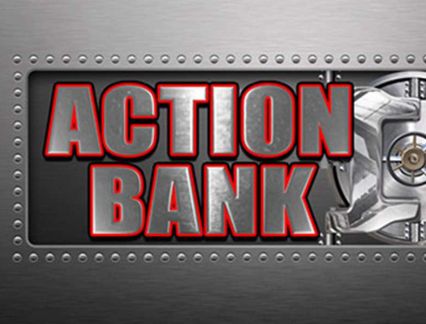- Action Bank Slot Free
- Action Bank Slot Machine Bally
- Action Bank Card Credit Card
- Slot Machines Bank
- Action Bank Slot Machine
Home > Bank Life Cycle > Topic Index > Enforcement Actions
Asset Based Lending & Factoring Show Asset Based Lending & Factoring sub menu. Funding Options. How Factoring Works. Recent Fundings.

Action Bank is a perfect online slot game for lots of thrill and action. This game has 95.16% RTP and you can certainly win the jackpot by landing the winning combination. Coinfalls Live Casino UK Online. BankFind - FDIC Bank Data API Documentation (Beta).
Action Bank Slot Free
Sections in this Topic
Related Topic
Action Bank Slot Machine Bally
Overview
The Federal Reserve Board has a broad range of enforcement powers over both domestic and foreign financial institutions and over the individuals associated with them. Generally, informal or formal enforcement actions are taken after a bank examination, but they might also be taken when a Reserve Bank becomes aware that a problem at a bank warrants immediate attention and correction. Maintaining a close relationship with your primary regulator or bank supervisor is important and can help with enforcement issues. (See Life Cycle Topic: 'The Supervisory Process and Regulatory Relations.')
Formal Supervisory Actions
The objective of formal action is to correct practices that the regulators believe to be unlawful, unsafe, or unsound. The following statutory tools are available to the Board.
Cease-and-Desist Orders
Generally, the Board may use its cease-and-desist authority against a state member bank and any institution-affiliated party when it finds that a bank or party is engaging, has engaged, or is about to engage in
- a violation of law, rule, or regulation;
- a violation of a condition imposed in writing by the Board in connection with the granting of any application or any written agreement; or
- an unsafe or unsound practice.

Temporary Cease-and-Desist Orders
If a violation or threatened violation of law, rule, or regulation, or if engagement in an unsafe or unsound practice specified in the notice of charges, is likely to cause the bank’s insolvency, cause significant dissipation of the bank’s assets or earnings, weaken the bank’s condition, or otherwise prejudice the interests of depositors before the completion of the proceedings (initiated by the issuance of the notice of charges), the Board may, in conjunction with issuing a notice of charges, issue a temporary cease-and desist order against the bank or any institution-affiliated party to effect immediate correction.
Action Bank Card Credit Card
When any final order or temporary cease-and desist order has been violated, the Board may apply to a U.S. district court for enforcement of the action. The court may order and require compliance. Violations of final orders and written agreements may also give rise to the assessment of civil money penalties against the offending bank or institution-affiliated party, as circumstances warrant.
As a general rule, supervisory actions are considered when other, more routine measures, such as formal discussions with a bank’s principals or directors and normal follow-up procedures, have failed to resolve supervisory concerns. The Uniform Interagency Bank Rating System clearly identifies the more serious problem banks. See the topic Bank Rating System for more information on how regulators determine ratings.
Written Agreements
When circumstances warrant a less severe form of formal supervisory action, a written agreement may be used. A written agreement may be with either the Board or with the Reserve Bank under delegated authority. The agreement may relate to any of the problems found at the bank or to any problems involving institution-affiliated parties.
The Board is also authorized to remove any current institution-affiliated party of a bank for certain violations and misconduct, to bar permanently from the banking industry any current or former institution-affiliated party, and to prohibit any current or former institution-affiliated party from future involvement with any insured depository institution, bank or thrift holding company, or nonbank subsidiary. This authority is distinct from the Board’s authority under prompt corrective action to dismiss senior officers from a particular bank.
Informal Supervisory Actions

Slot Machines Bank
Informal supervisory tools are used when circumstances warrant a less severe form of action than the formal supervisory actions described above. Informal actions are not enforceable, and their violation cannot serve as a basis for assessing a civil money penalty or initiating a removal and prohibition action. Informal actions are not published or publicly available. These informal actions include the following:

Action Bank Slot Machine
- Supervisory Letters are the least severe form of enforcement action and are generally used to correct minor problems or to request periodic reports addressing certain aspects of a bank’s operations. The Reserve Bank informs an institution, in writing, of the matters that are in need of attention. This letter is typically sent to the CEO or president of an institution, and that individual may agree to the provisions of the Supervisory Letter without the involvement of the board of directors of the institution.
- Board Resolutions are informal actions of moderate severity. They generally represent a number of commitments made by the bank’s directors, and they are incorporated into the bank’s corporate minutes. These commitments often request the institution’s board of directors to develop plans, procedures, or policies to facilitate corrective action at the institution. A board resolution does not constitute a contract between the institution and the Reserve Bank.
- Memoranda of understanding (MOU) are the most severe form of informal action. They are highly structured agreements that are signed by both the Reserve Bank and the institution’s board of directors. An MOU is generally used when a bank has multiple deficiencies that the Reserve Bank believes can be corrected by the present management. Although an informal action, imposition of an MOU may require disclosure to the Securities and Exchange Commission and to the bank’s liability bond issuer.